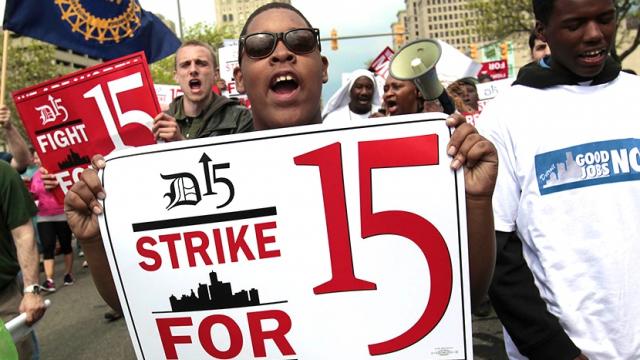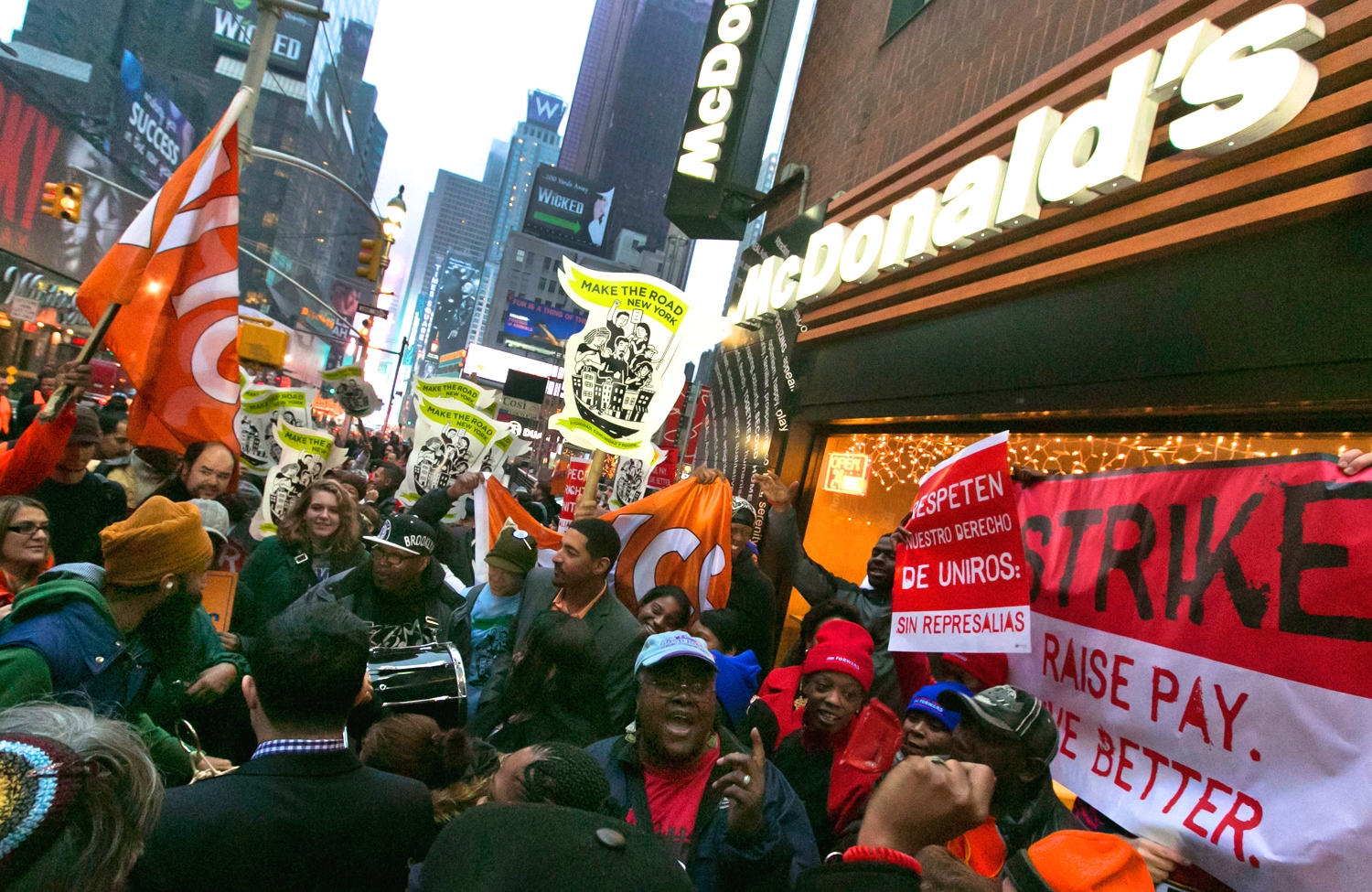
On May 15, fast food workers plan to mount one-day strikes in 150 U.S. cities, accompanied by protests in 30 countries, labor sources tell Salon. Organizers expect the walkouts to spread for the first time to cities including Philadelphia, Miami, Orlando, and Sacramento, and to involve thousands of total workers, including hundreds each in cities including St. Louis, Kansas City, Milwaukee, Oakland, Detroit, Chicago, Los Angeles, and New York City.
Abroad, May 15 fast food protests – many of them targeting McDonald’s in particular – are planned in cities including Karachi, Casablanca, London, Sao Paolo, Dublin, Bangkok, Buenos Aires, Geneva, and San Salvador, as well as locations in India, Indonesia, Nigeria, South Africa, and Japan.
Activists plan to hold a teach-in outside McDonald’s head office in Auckland, New Zealand; to stage flash mobs at five McDonald’s locations in the Philippines, and to shut down a major McDonald’s during lunchtime in Belgium. The following day, fast food workers in Italy plan to mount their own strike, staging protests in Rome, Milan, and Venice and shutting down stores for the day.
The actions were discussed last week in New York at an international gathering of union leaders and fast food workers from dozens of countries, called by the global union federation IUF (International Union of Food, Agricultural, Hotel, Restaurant, Catering, Tobacco and Allied Workers’ Associations). They mark the latest escalation in the showdown between an embattled U.S. labor movement and a fast food industry whose jobs are increasingly prevalent and representative of work in America’s post-crash economy.
“I’m tired of trying to make ends meet and they’re not meeting…” Richmond, Virginia, Burger King employee Crystal Travis told Salon before joining a 100-city strike last December. “I don’t make enough to even have Christmas.”
As I’ve reported, the campaign’s demands are $15 per hour wages and the chance to freely form a union; its primary funder and director is the Service Employees International Union; and its tactics include a mix of media, legal, political, and workplace pressure on the industry. Like high-profile recent organizing efforts against non-union targets including Wal-Mart, the campaign has sought to use short-term strikes by small minorities of the workforce as anchors for broader campaigns to engage co-workers and embarrass management, even without generally shutting down places of business.
Over the past two months, the campaign has hailed the filing of wage theft lawsuits against McDonald’s, the announcement of a mayor-backed plan to raise Seattle’s minimum wage to $15 over the next decade, and the release of research showing a 543-to-1 fast food CEO-to-worker pay ratio in 2012.
McDonald’s did not immediately respond to a request for comment. The National Council of Chain Restaurants dismissed last August’s walkout on the grounds that “a few scattered protests organized by outside labor groups hardly amounts to a nationwide ‘strike’ or movement”; McDonald’s emphasized prior to the subsequent December walkout that both the corporation and its franchisees are “committed to providing our employees with opportunities to succeed.”
In a March report filed with the SEC, McDonald’s acknowledged that labor efforts including strikes and protests “can adversely affect us.” A December internal memo from the National Restaurant Association, obtained by Salon, concludes that “almost none of the protesters” at that month’s actions “were actual workers,” but that organizers “were able to manufacture ‘rent-a-mob protests in more cities,” and their efforts “are becoming more coordinated and centrally organized” than before.
3 WAYS TO SHOW YOUR SUPPORT
- Log in to post comments












